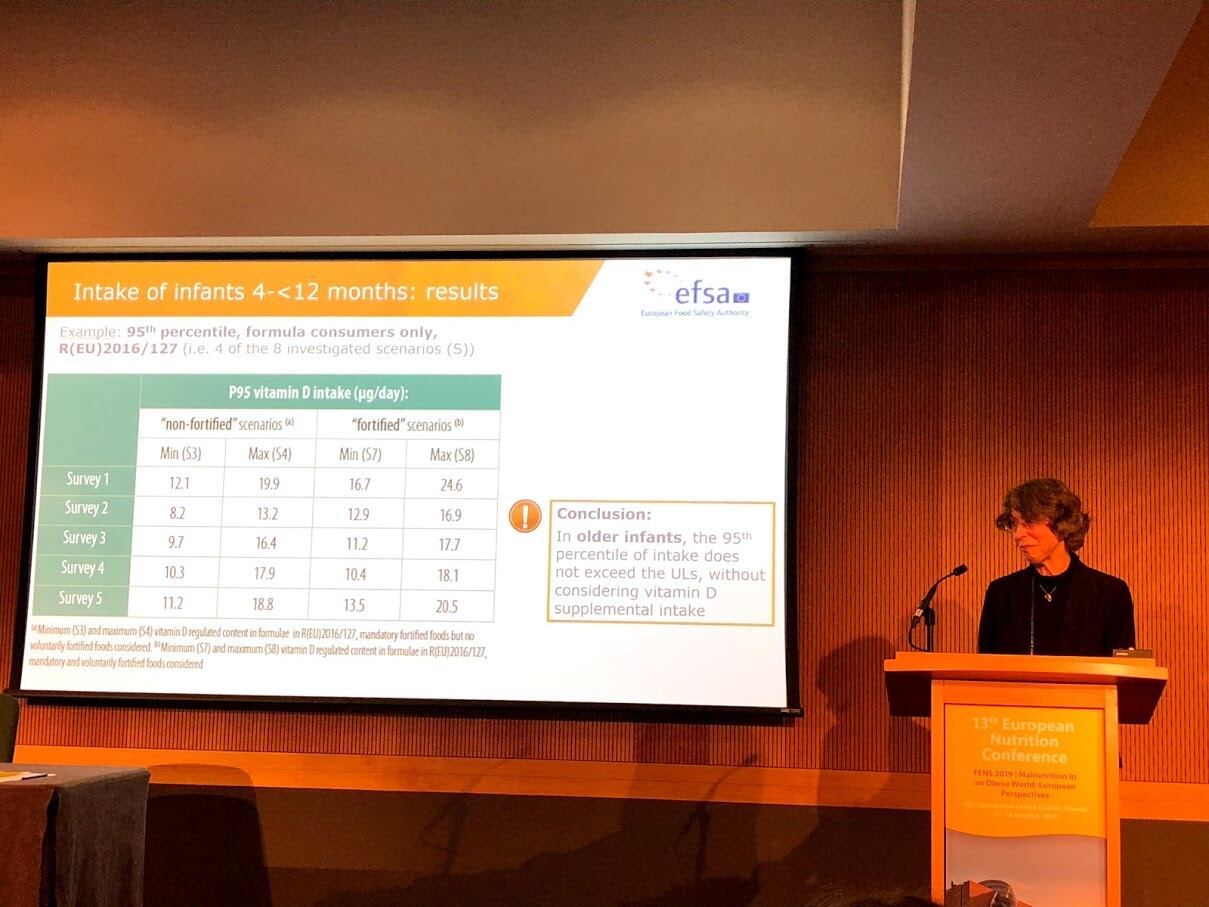In the British Nutrition Foundation’s (BNF) Annual Lecture 2019, professor Susan Lanham-New spoke of the need to increase vitamin D either through diet or supplements arguing that this was necessary in countries with low levels of sunlight.
“There is a real need to promote more awareness of vitamin D deficiency across younger populations within the UK,” says professor Lanham-New.
“It is established that vitamin D is beneficial for bone health and our studies demonstrate the importance of vitamin D for athletic performance within UK university students too.
“Good bone health ensures the consolidation of bone mass during adulthood and helps to prevent osteoporosis in later life – more attention needs to be placed on the importance of this.”
Vitamin D deficiency has long been an issue amongst countries that receive relatively little sunlight especially in the autumn and winter months.
While professor Lanham-New’s lecture focuses on the younger population, the problem is also apparent in adults aged 60 years and over, as Irish researchers highlight the effect low levels of the vitamin are having on skeletal muscle function.
The professor also calls for more attention to be paid to another population, in which new research looks at the extent vitamin D deficiency is having in over 8,000 South Asians living in the UK – the largest dataset available on vitamin D status in ethnic minority groups.
Adult rickets form
“Such low levels of vitamin D in this population group is extremely concerning,” says professor Lanham-New.
“Due to darker skin pigmentation and lower sun exposure to the skin due to differing lifestyle habits and cultural dress style, this population is particularly susceptible to vitamin D deficiency, and this can lead to osteomalacia – the adult form of rickets.
“This disease presents itself through extensive bone pain, muscle ache and tiredness, and also presents a potential increased risk of diabetes. As such, ensuring an adequate intake of vitamin D through diet or supplements is essential,” she adds.
The UK government recommends that all adults and children over five should consider taking a daily supplement containing 10 micrograms (μg) of vitamin D during the autumn and winter.
Vitamin D recommendations vary from country to country and most countries in Europe set their own nutrient recommendations including guidelines that deliver adequate serum 25(OH)D status in most subjects (97.5% of the population).
The European Food Safety Authority (EFSA) recently updated its recommendation for the maximum tolerable upper intake level for vitamin D for infants
Based on the overall evidence, the Panel kept the UL of 25 μg/day for infants aged up to 6 months and set an Upper Level (UL) of 35 μg/day for infants 6–12 months.
The Panel on Dietetic Products, Nutrition and Allergies (NDA) kept the adequate intake (AI) of 15 µg per day for healthy individuals over one year of age. This included pregnant and lactating women.
D2 vs. D3
Professor Lanham-New, who is head of the nutritional sciences department at the University of Surrey, bought to the audience’s attention recent research that looks at whether 15 mg/d of vitamin D2 or vitamin D3 added to juice or food, was effective in increasing serum total 25(OH)D.
Previous work points to a lack of any difference between vitamin D2 (ergocalciferol) and vitamin D3 (cholecalciferol) in their effectiveness in improving vitamin D status.
Although both vitamin D2 and vitamin D3 increased 25(OH)D status and prevented the decline in 25(OH)D status during the wintertime, the results showed that at a low, but relevant, dose of 15 mg/d, vitamin D3 was much more efficacious than vitamin D2 at increasing total 25(OH)D.
“Our novel work on differences in vitamin D2 and vitamin D3 highlights some key issues with respect to the use of vitamin D2 fortification,” professor Lanham-New says.
“This study is larger and more comprehensive than previous trials and backs up theories suggesting that, for the most effective supplementation, foods and drinks should be fortified with vitamin D3 – this finding is particularly key for vegetarians and vegans, since vitamin D3 is from an animal source.
“We are now working on a systems biology approach to vitamin D and we have some further exciting data in preparation on vitamin D2 and vitamin D3.”




